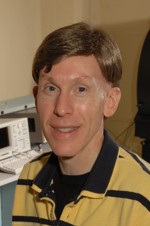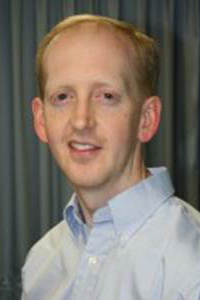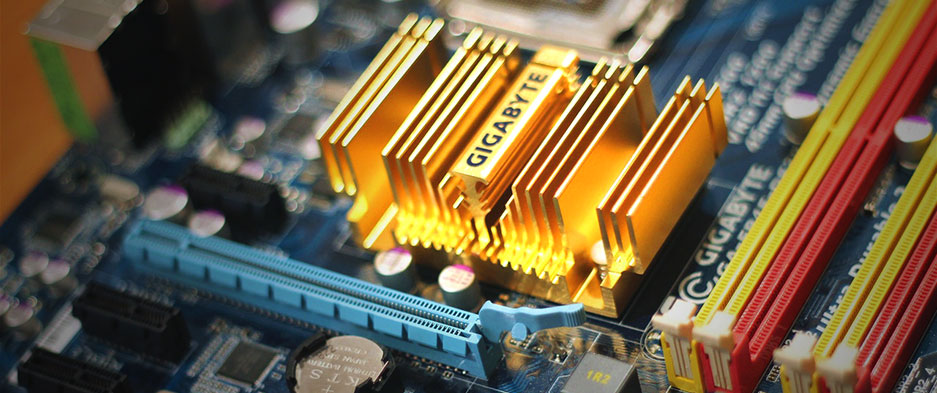SURE Program in Solid-State Devices
Solid-State Devices for Electronics, Photonics, and Magnetics Technology
Summer Undergraduate Research Experience (SURE) Program:
Solid-State Devices for Electronics, Photonics, and Magnetics Technology
Micro- and nanofabrication of solid-state devices is rapidly becoming the key driver of interdisciplinary research in emerging fields such as nanoelectronics, nanophotonics, nanomechanics, nanophysics, and biophysics. Such technology is a critical component of modern economic development, and leadership in research is a key to sustained US economic competitiveness. One of the greatest challenges in maintaining that leadership is the limited number of undergraduates from US engineering programs who pursue graduate studies in solid-state devices and the related topics of materials and device processing.
The Summer Undergraduate Research Experience ("the SURE program") in Solid-State Devices for Electronics, Photonics, and Magnetics Technology was created to address this need. The SURE program will provide an average of ten students per summer the opportunity to pursue ten weeks of directed research in the areas of electronic, photonic, and magnetic devices, including material and device design, processing, characterization, and modeling. Faculty members on the REU team currently conduct independent, interdisciplinary, and industry-coordinated studies ranging from fundamental materials and physics to functional devices, circuits, and systems.
This has been facilitated by linking physics and materials processing programs to integrated multifunctional devices and circuits at the micro- and nanoscale. Thus, our underlying research paradigm of materials-to-devices will be adopted in this program. The REU program will be characterized by three principle goals: Development of the technical skills and critical thinking abilities of the participants and exposure to substantive research problems in device-related technology; development of the participants' technical communication abilities and their awareness of the societal context in which research is conducted; utilization of current and new partnering relationships to increase participation by students from a variety of groups.
Competitive Compensation for Sure Participants. - The stipend is $7,000 for the 10-week program.
The SURE program is currently on hold. We hope to continue the program in future summers. Updates will be posted.
Structure and Eligibility Requirements
The SURE program is supported by the Division of Engineering Education and Centers of the National Science Foundation, under grant number EEC-1560070.
Any opinions, findings, and conclusions or recommendations expressed in this material are those of the author(s) and do not necessarily reflect the views of the National Science Foundation.
For more information about the NSF-sponsored Summer Research Program, students should contact:

Harrell, Rod
Professor
(864)656-5918
Email Harrell
Sosolik, Chad
Professor
(864)656-0310
Email Sosolik
Research Facilities
The major infrastructure required to support the research facilitated by the SURE program is already in place in the PIs’ departments, centers, and laboratories at Clemson. Each SURE student will be located in the research lab of the faculty advisor along with graduate students working in similar areas of research. Each student will have access to a networked computer. Since this is a multidisciplinary REU, the associated labs and facilities will be distributed across campus. Most device fabrication will be done in the ECE department’s fabrication facilities or in the cleanroom facility at COMSET. Microscopy characterization can be performed in several of the faculty labs, but most advanced characterization will be performed in the Electron Microscope Facility. Electrical characterization of devices and materials is available in two labs, one primarily for DC and low frequency measurements and another for high-frequency measurements. There is an optoelectronic characterization lab for both active and passive devices. Therefore, the capability exists to characterize materials and devices from DC to light. Furthermore, the Center for Optical Materials Science and Engineering Technologies (COMSET) is available for developing advanced materials, devices and systems that generate, transmit, manipulate and utilize light. COMSET operates an Optical Fiber Laboratory, which is the only academic facility in the United States with industry-grade capabilities for fabricating optical fiber.
The School of Materials Science & Engineering has many laboratories for materials synthesis, processing, and characterization, as well as computational facilities for modeling. The Biosensor lab contains facilities for biological sensor material and device fabrication and characterization. Finally, we have extensive ion beam facilities for both singly-charged and highly charged ion generation, control, focusing, and characterization. These ion beam tools can be used to modify the electronic and mechanical properties of materials, and have many potential applications in material and device processing.
Typical Research Projects
- Fabrication and Characterization of Organic and Inorganic Devices
- Flexible Conductive Films based on Reduced Graphene Oxide
- Advanced Semiconductor Lasers and Optical Fibers
- Materials Modification with Highly Charged Ions – Future Techniques for Nanofabrication
- RF Interferometry for Temperature Sensing and Single Cell Detection
- Optimization of Magnetic Nanoparticles for Medical Applications
- Design and Fabrication of 3D Meta-Optics
- Nanoporous silicon waveguides for sensing applications
- Synthesis of Graphene for Microelectromechanical Sensing
- Nanostructured Biosensor for Glucose Detection


